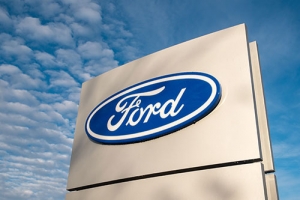FORD TO INTRODUCE NEW MODELS BUT WILL SCALE BACK EUROPEAN OPERATIONS
Ford is launching a new business model and fresh vehicle line-up as part of the most comprehensive redesign in the history of its business in Europe. 
The new European operating model and resulting organisation are effective July 1. Three new business groups –Commercial Vehicles (CVs), Passenger Vehicles (PVs) and Imports – are being established to facilitate what the company says will be ‘fast decision making centred on customer needs.’
The company will also introduce at least three new nameplates in the next five years. These will, Ford says, include the all-new Mustang-inspired fully electric performance utility. The new nameplates are in addition to all-new Kuga, Puma and Explorer Plug-In Hybrid coming by early 2020.
Every new Ford passenger vehicle nameplate will include an electrified option.
CLOSURES
The foundation of Ford’s new model in Europe is what the company says it ‘a broad-based efficiency improvement program’. This program will, sadly, include the closure or sale of component manufacturing plants by the end of next year:
- Proposed closure of Bridgend Engine Plant in South Wales
- Closure of Ford Aquitaine Industries Transmission Plant in France
- Closure of Naberezhnye Chelny Assembly, St. Petersburg Assembly and Elabuga Engine Plant in Russia
- Sale of the Kechnec Transmission Plant in Slovakia to Magna
As a result, Ford’s manufacturing footprint in Europe will be reduced to a proposed 18 facilities by the end of 2020, from 24 at the beginning of 2019.
In addition, Ford is implementing shift reductions at its assembly plants in Saarlouis, Germany, and Valencia, Spain, as well as a more streamlined management structure and marketing and sales operations.
In total, approximately 12,000 jobs will be impacted at Ford’s wholly owned facilities and consolidated joint ventures in Europe by the end of 2020.
Source: Motor Trader E-Magazine (July 2019)
11 Jul 2019









